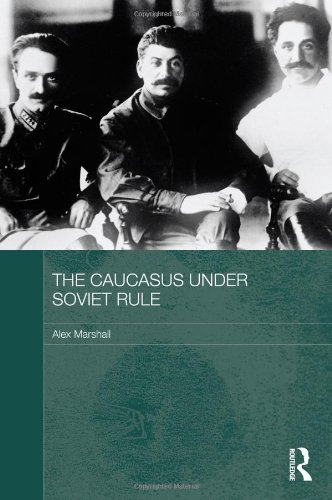

Most ebook files are in PDF format, so you can easily read them using various software such as Foxit Reader or directly on the Google Chrome browser.
Some ebook files are released by publishers in other formats such as .awz, .mobi, .epub, .fb2, etc. You may need to install specific software to read these formats on mobile/PC, such as Calibre.
Please read the tutorial at this link: https://ebookbell.com/faq
We offer FREE conversion to the popular formats you request; however, this may take some time. Therefore, right after payment, please email us, and we will try to provide the service as quickly as possible.
For some exceptional file formats or broken links (if any), please refrain from opening any disputes. Instead, email us first, and we will try to assist within a maximum of 6 hours.
EbookBell Team

4.3
88 reviewsThis book argues that understanding the Soviet legacy in the region is critical to analysing both the new states of the Transcaucasus and the autonomous territories of the North Caucasus. It examines the impact of Soviet rule on the Caucasus, focusing in particular on the period from 1917 to 1955.
Important questions covered include how the Soviet Union created ‘nations’ out of the diverse peoples of the North Caucasus; the true nature of the 1917 revolution; the role and effects of forced migration in the region; how over time the constituent nationalities of the region came to re-define themselves; and how Islamic radicalism came to assume the importance it continues to hold today.
A cauldron of war, revolution, and foreign interventions - from the British and Ottoman Turks to the oil-hungry armies of Hitler’s Third Reich - the Caucasus and the policies and actors it produced (not least Stalin, Sergo Ordzhonikidze and Anastas Mikoyan) both shaped the Soviet experiment in the twentieth century and appear set to continue to shape the geopolitics of the twenty-first.
Making unprecedented use of memoirs, archives and published sources, this book is an invaluable aid for scholars, political analysts and journalists alike to understanding one of the most important borderlands of the modern world.